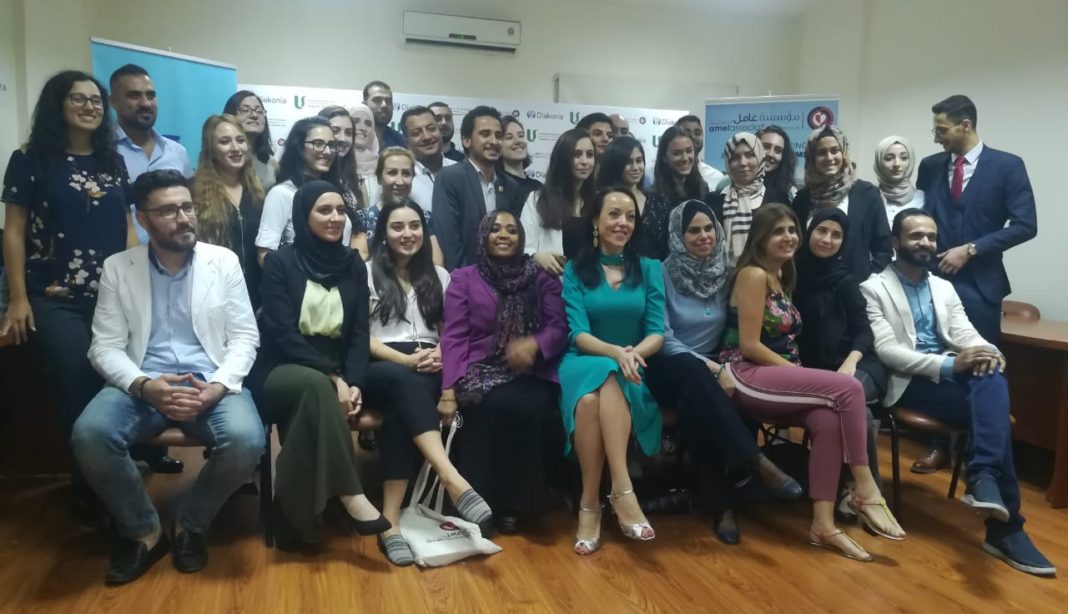For the eighth consecutive year, Amel Association International organized “The Summer School in Law and Armed Conflict” two-week session, in cooperation with the Faculty of Law at Sagesse University, and with the support of Diakonia, which gathered 30 participants from a host of Arab States, jurists, researchers, human rights activists, as well as number of legal experts. The event was directed by Dr. Karim Al-Mufti, Head of Amel’s Human Rights Department.
The event started on the 2nd of September and concluded on the 14th in the presence of Dr. Kamel Mohanna, Founder and President of Amel Association International , Yelena Blamants, President of Diakonia in Lebanon, Dr. Karim al-Mufti and Dr. Ahmed Khalifa, from Cairo’s Ain Shams University, and Lebanese judge Hatem Madi. Student participants and members of Amel’s own internal team were also present. The inauguration was held in Amel’s House of Human Rights, in Mousaytbeh, Beirut.


During his speech, Dr. Kamel Mohanna expressed the need to respect international and national laws established by the legal and humanitarian structures designed to protect vulnerable persons against human rights violations. He recalled that Amel’s vision rests primarily on respect for human rights and dignity, regardless of any political, cultural, religious, ethnic or territorial affiliation. He emphasised that it is not possible to build a fair and healthy society without promoting respect for these rights, which must be done through education, and by taking sustainable, national and global measures to ensure recognition and effective universal observation.
Dr. Kamel Mohanna also referred to Amel’s extensive humanitarian work with the most marginalized and vulnerable areas of Lebanon, particularly in terms of the impact related to the Syrian crisis on Lebanese society. Yelena Blamants, President of Diakonia, stated that the objective of Diakonia’s cooperation in this initiative is to support each person and every activist in the field of law and humanitarian rights.



Amel Association International’s philosophy consists of the following five focal points:
- All humanitarian actions should focus on working with marginalized groups directly rather than approaching humanitarianism from a theoretical framework.
- Support justice around the world and to primarily focus on the fair cause of the Palestinian people.
- Reject the double standards of First versus the Third world societies.
- Work on the fair distribution of the globe’s wealth amongst all human beings and societies.
- Encourage welfare systems and social justice approaches within all countries.








 Creative Commons Attribution 4.0 International license
Creative Commons Attribution 4.0 International license